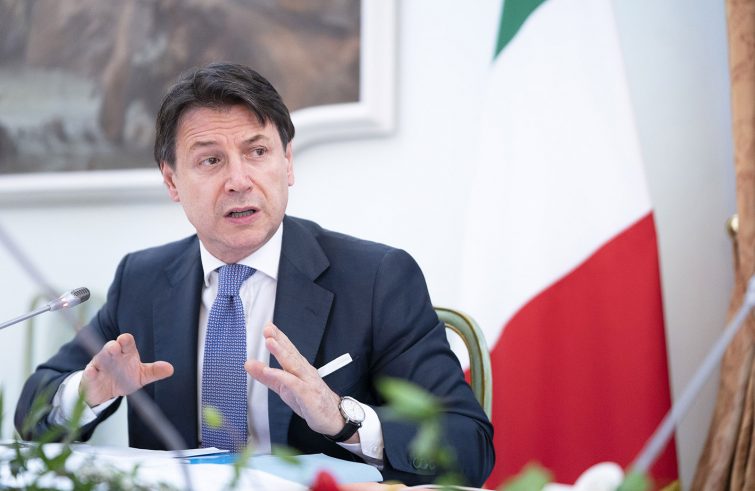
The political situation offers many serious reasons for concern, but in order not to indulge in a catastrophic narrative – where the only topic of debate is seemingly the government’s solidity – positive signs must not be ignored. Prime Minister Conte has finally invited the oppositions to convene for a debate on the crucial issues concerning the recovery of the country. It was announced at the end of the States-General and was shelved for a few days.
This is not the time for wishful thinking, ahead of a new public demonstration staged by Italy’s centre-right. However, there was a signal.
Likewise, beyond the scope of political actors in the strict sense of the word, the appeal of the President of Confindustria (the Italian Employers’ Federation) for a dialogue with the government and trade unions – after his “militant” debut as new leader of the Federation – is based on a reasonable approach to problems. However, the most important signal came from Parliament, with the opening of a debate in the Chamber ( following committee approval) regarding the Del Rio-Lepri bill on dependent child allowance. This measure has anticipated one of the fundamental aspects of the Family Act recently introduced by the Government , which continues its passage through Parliament in a substantially collaborative climate between the majority and opposition parties.
This shows that when not ideas are set aside (perish the thought) but ideologies, points of convergence can be found on practical problems in everyone’s interest.
There is no time to spare. Support to families and newborn must top the country’s priorities, as evidenced yet again by ISTAT’s Annual Report, indicating the dramatic impact of Covid also on demography.
At the same time, we see the warning signs of a revival of populist ideological slogans, starting with the two key themes of immigration and Europe.
This can happen, despite the disastrous actions taken by international populist leaders faced with the pandemic, precisely because, at least in our country, the risk of infection has diminished considerably, while economic and social hardship is taking its toll in all its harshness, with unemployment in the foreground, as ISTAT points out. Riding the wave of malaise is tragically easy, but
The Country does not need anti-politics. It needs good politics.
It needs answers arising from dialogue and discussion that will result in operational decisions, albeit with all the limitations that every political decision entails. The Government’s difficulties in finalising the long-awaited Simplification Decree are an obvious symptom of a political landscape where the resurgence of ideological drives, inside and outside the majority coalition, freezes decision-making processes and causes continual postponements.
The most macroscopic case concerns the relationship with Europe.
After a poor start in coping with the aftermath of the pandemic, a historic process was set in motion in the EU that was given further impetus by the new German Presidency. For our country, the resources deployed represent a formidable opportunity that must not be missed. But Italian politics is bogged down by ideological debate on the ESM (one of the instruments envisaged by the European strategy) which the Five Star Movement (M5S), the League and the Brothers of Italy – Fdl have consistently opposed, regardless. Thus a well-defined stance keeps being postponed. A negotiated motion will probably be voted on the eve of the next European Council, approving all the measures while in fact postponing a substantial decision until September. Its impact on the incisiveness of the Italian stance can be easily imagined. The problem is that a majority motion that gives the green light to the ESM risks being rejected in Parliament, at the moment, especially in the Senate, where government parties have a very narrow majority and whose members continue changing sides, shifting from the M5S to the League.
This practice is a reminder of the worst aspects of the First Republic which, as usual, every party makes a strong case for when they can take advantage of it.
The paradox is that Forza Italia promptly sided in favour of the ESM, and it was no coincidence that Berlusconi went so far as to explicitly suggest the formation of a new majority based on the positive relationship with Europe. In any case, no one dares to make forecasts extending beyond next September, perhaps aiming at the regional elections. But the country needs to extend its vision in order to get back on track.












